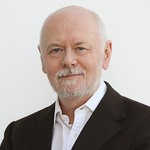Blog
In appreciation of Giovanni Andrea Cornia
I first met Andrea some 40 years ago, in 1985, when he invited me to a conference at UNICEF in New York on ‘Adjustment with a Human Face’, a highly influential project led by Andrea (then Chief Economist of UNICEF), Richard Jolly, and Frances Stewart, and subsequently published in two volumes by Oxford University Press. Not only was this my first visit to the Big Apple but also my first encounter with ‘the Big Italian’—big both in intellect and personality.
The project was typical of Andrea (and indeed of Frances and Richard): tackle a priority policy issue head on, question the orthodoxy—the 1980s was the era of structural adjustment—and get the results quickly out into the policy world (notably via UNICEF’s field operations). UNICEF’s work was influential in encouraging the World Bank to return to the challenge of poverty in the early 1990s, after the bank lost its focus on poverty amid the macroeconomic crises of the early 1980s.
Andrea’s work and leadership influenced my career and that of many others: chew on a big policy issue (even when sometimes indigestible) and get out of the office and into the field to put ‘some dust on the boots’ as we liked to say. We had a running joke about each other’s shoes: Andrea was always the elegant Italian, and therefore naturally an admirer of fine English footwear—to the extent that we used to admonish each other if our shoes were not well-polished.
Andrea and I reunited when I joined UNU-WIDER in late 1997 (Andrea was appointed Director in 1995). He encouraged my work on post-conflict reconstruction—another example of Andrea prioritizing big and urgent issues.
During his time as Director at UNU-WIDER (1995–99) Andrea ran a project on income inequality’s relationship to globalization and liberalization, which again demonstrated his ability to bring together a team to tackle a big and current topic in depth. The institute’s World Income Inequality Database (WIID) originated from that project and has been a major resource for the research and policy communities for more than 20 years.
There was a tremendous intellectual cross fertilization from UNU-WIDER’s projects on the transition in eastern Europe and the former Soviet Union, again stimulated by Andrea. He continued his work in the area—which began when he was Research Director at UNICEF’s Innocenti Research Centre in Florence—with a UNU-WIDER project on the mortality crisis in transition economies (with Renato Paniccià). Together with Vladimir Popov, he also led an exciting project comparing gradual and late reformers among the transition economies. This also informed the institute’s work on other regions of the Global South, including Africa, which Andrea published extensively on.
At the time, there was much discussion around the role of institutions in development, a necessary reaction to the ‘leave-it-to-the-market’ philosophy that pervaded the 1980s (and which was to prove disastrous in some of the transition economies during the 1990s). It was therefore very appropriate that Andrea launched the WIDER Annual Lecture series, with Douglass C. North delivering the very first in 1997. I well remember the second, given by Joe Stiglitz in 1998, which was a critique of the Washington Consensus (notable for being delivered by a serving World Bank Chief Economist). Both lectures set a very high bar for the series, which continues to this day.
After taking up a chair in economics at the University of Florence in 2000, Andrea continued to research and teach actively, including a return to his earlier interest in the relationship between macroeconomic policy, growth, and income distribution. Andrea led a UNU-WIDER project over 2012–14 on inequality in Latin America, which brought together a cross-disciplinary team to look at all aspects of the issue with many fascinating case studies. He continued to be an active participant in UNU-WIDER development conferences: a video of Andrea speaking (in full flow) about the SDGs, poverty and inequality at the 2018 conference is here.
I have only touched on some of Andrea’s vast output over a long and distinguished career in which he made a great contribution to UNU-WIDER—and his legacy lives on today, notably in the institute’s annual lecture series—as well as to the field of development economics and policy more broadly. We miss him dearly.
Tony Addison is a Professor of Economics at the University of Copenhagen, and former Chief Economist and Deputy Director of UNU-WIDER.
 Join the network
Join the network


